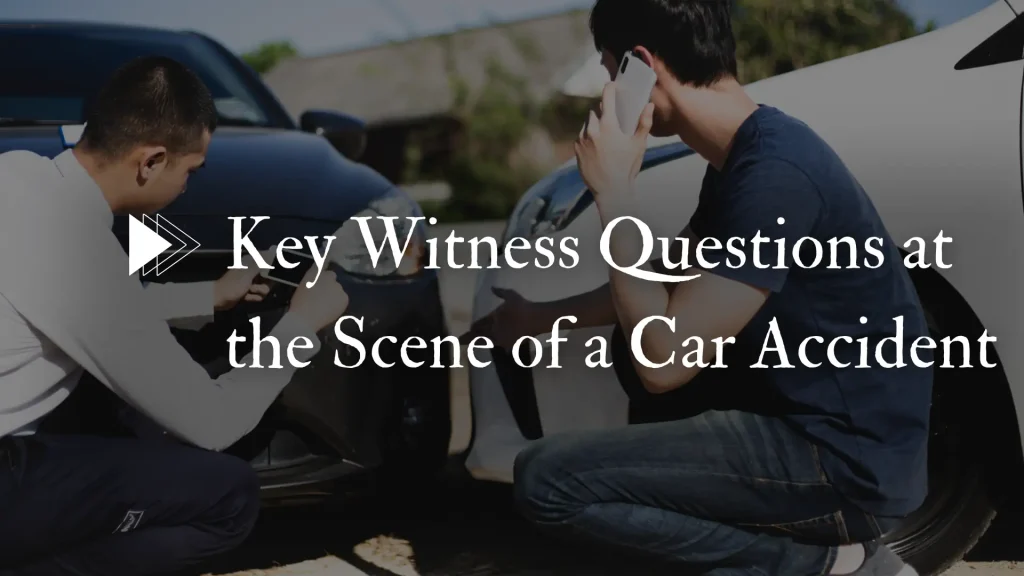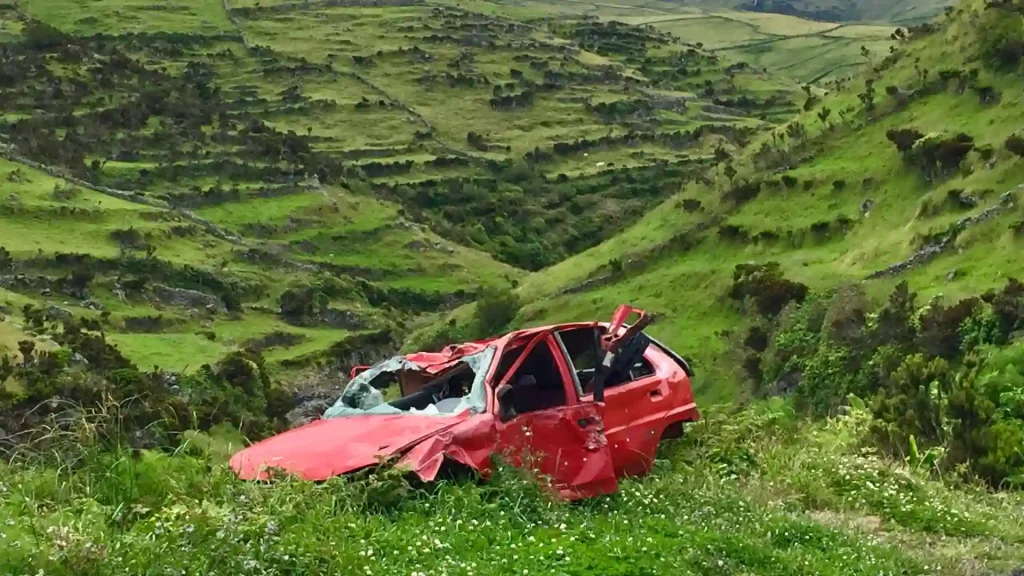
If you suffer injuries in a car accident, eyewitnesses may be able to help you build your case against the at-fault driver. An eyewitness to the crash can provide critical information from an objective point of view that would not otherwise be available. Here’s a closer look at what questions to ask a car accident witness to get the most out of their testimony.
What Questions Should I Ask a Witness?
Depending on where the car accident occurred, another driver or someone walking down the street may have witnessed the accident. Consider asking any eyewitnesses the following open-ended questions. This will encourage them to provide detailed responses that can be helpful to your case.
What did you see?
A witness’s recollection of how the accident occurred is best captured as close in time to the accident as possible. As such, you can obtain crucial information about the mechanics of the accident when you speak to an eyewitness at the accident scene. Record the witness’s observations about how the accident occurred. You can best capture the answer by asking this open-ended question, such as, “Can you please tell me what you saw?”
Where were you when the accident occurred?
Understanding where the witness was located when the collision occurred helps establish their perspective. It also verifies that they could have physically seen the accident happen or what color a traffic light was if that fact is an issue in your case.
What did you notice about the behavior of the other driver?
By asking this question, the witness may offer whether they believe the driver was speeding, not following your car at a safe distance, or distracted by their phone. All of these factors can indicate potential negligence on the part of that driver.
Did you hear anything before the crash occurred?
If the witness tells you they heard tires screeching or a horn honk, you and your car accident attorney can create a timeline of events before the collision. This helps establish the liability of the other driver
Who do you think caused the accident?
As the witness recounts what they observed about the crash, they may offer who they think was responsible for the accident. For example, they may say that one driver was speeding or ran a red light. Or, they may suggest that you were following too closely when the rear-end accident occurred. Whether the information is potentially helpful (or harmful) to your case, it is best to know whether the witness has an opinion concerning who was at fault. This information can help your attorney assess the strength of your claim.
What is your contact information?
Be sure to record the witness’s name and phone number when you speak to them. Although their contact information is typically included with the car accident witness statement they provide for the police officer’s report, they may leave the scene before law enforcement arrives or be unwilling to provide a statement to the investigating police officer. As such, even if they are reluctant to talk to you about the accident, see if they will give you their contact information.
Why Are Eyewitness Statements Helpful?
If someone witnessed an accident, they can provide an objective statement concerning how it occurred and who may be at fault. Accordingly, eyewitness accounts of the accident can be crucial evidence to support your case. Suppose the accident was not captured on a traffic camera or surveillance footage from a local business. The witness’s version of events may be the only way to corroborate your recollection of how the accident occurred.
Because the witness was not involved in the car accident, they may have more credibility in the eyes of the judge, jury, or even the insurance company evaluating liability in the case. Eyewitnesses can provide information that the parties may not be able to provide, such as the driver’s actions before the collision occurred, the road conditions, and the traffic light color if the parties dispute that fact.
But what is car accident witness responsibility? Unless you subpoena them to offer their testimony at a deposition or trial, they do not have to help you. As such, they may be more inclined to report what they observed if you kindly approach them.
How Should I Document the Witness’s Recollection of Events?

Ensuring you accurately capture the witness’s statement is critical to its effectiveness. You can write down what they say at the scene and have them review and sign it for confirmation. The witness may be unwilling to say anything about the accident at the scene. If so, confirm you have valid contact information. This way, your attorney and your insurance company can reach out to them for a statement later. Some people may feel more comfortable offering a recorded statement to a lawyer or insurance adjuster for the company’s case review and evaluation.
What If No One Witnessed the Accident?
If there are no eyewitnesses, you can still gather valuable evidence at the accident scene. Take photographs of the vehicles involved, your injuries, and any nearby traffic signs or signals. See whether any local businesses have security footage of the accident. Assuming law enforcement investigated the accident, you can request a copy of the police report. Your attorney will initiate their own investigation once you retain them. Still, you can help them get started by collecting evidence at the scene and providing a file with the information you gathered.
Contact Chris Hudson Law Group Today
At Chris Hudson Law Group, our legal team has the skills and experience to handle your car accident case. Explore our case results. If you suffered injuries in a car accident in Georgia that wasn’t your fault, you need a strong legal advocate to help you pursue the compensation you deserve. We understand that the legal process can be intimidating, especially when trying to recover from your injuries and struggling to pay unexpected medical bills. Call us today at (706) 863-6600 or contact us online to get started by speaking to a car accident lawyer in Georgia for a free consultation.
